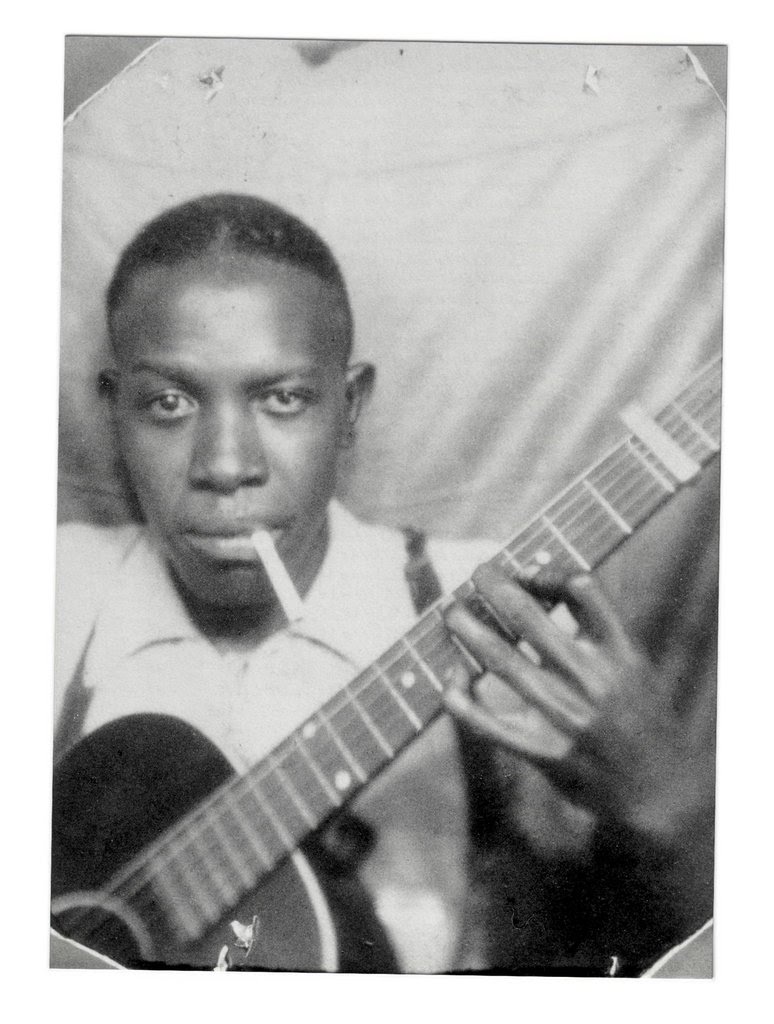The Legend of a Man, the Devil, and Blues
Written by: Neby Moges
Being the masterful yet mysterious founder of the delta style of blues, Robert Johnson’s compilation “King of the Delta Blues” is a rare story with many gaps in his past while also being the foundation of the future of American contemporary music. Johnson is notable for implementing a unique use of microtonality: a technique where the singer subtility hits highs and lows in the syllables of notes to convey an emotion. This can be heard in the first track of the compilation called “Cross Road Blues” where he goes from humming to then nearly shouting in between words. Johnson is also known for being a master of speedy guitar picking and on the opposite end slowly sliding notes with soul. In his song “Come on in My Kitchen,” we see Johnson allowing his words to flow while letting the guitar take a backseat with strumming light and long notes. It all blends with the tones of his voice. The results nearly make the listener want to slowly swing along, which is a rare quality. One that proves this artist’s effectiveness of getting his music across.
Personally, I enjoyed the record mainly because of Johnson’s backstory. From only having nearly three pictures taken of him to being one of the legends of blues, it is understandable why there are so many rumors and folktales surrounding him. Legend has it that his skill came from meeting the devil at a Mississippi crossroad and thus making an exchange of his soul for the otherworldly talent he comparatively possessed. Compared to his folklore, it is just as haunting to learn that Johnson still does not have a clear cause of death today. After being “rediscovered” in the 70’s by Gayle Wardlow, a historian whose focus is on American blues, one of the only few surviving documents he could find about Johnson were a flimsy death certificate submitted to the state of Mississippi nearly thirty years after Johnson’s death.
While Johnson nearly joined the graveyard of other African American artists whose influence were unjustly lost to racism and time, hopefully the delta blues legend can see from either heaven or hell that blues enthusiasts and historians still appreciate him today.
Sources
1) Havers, Richard (November 23, 2018). “The Devil’s Music: The Life and Legacy of Robert Johnson”. UDiscoverMusic.com. Retrieved April 2,2019.
2) “Discovering Robert Johnson’s Guitar Teacher, Ike Zimmerman”. Living Blues. No. 194. January–February 2008. pp. 68–73. ISSN 0024-5232.
3) October 30th. “The Legend of How Bluesman Robert Johnson Sold His Soul to the Devil at the Crossroads.” Open Culture, www.openculture.com/2020/10/the-legend-of-how-bluesman-robert-johnson-sold-his-soul-to-the-devil-at-the-crossroads.html.





